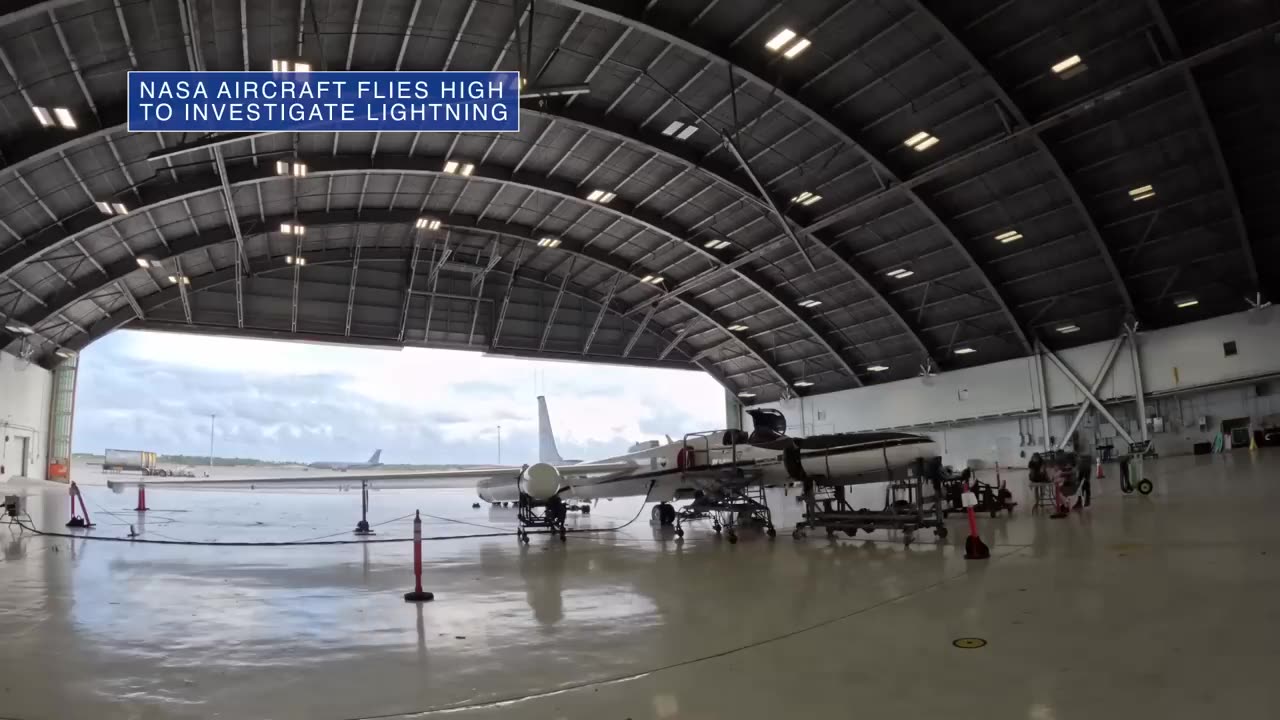Premium Only Content

July 2023 was a record-breaking month on This Week @NASA August 18, 2023
NASA, which stands for the National Aeronautics and Space Administration, is the United States government agency responsible for the nation's civilian space program and for aeronautics and aerospace research. Here are some key points about NASA:
Establishment: NASA was established on July 29, 1958, by the National Aeronautics and Space Act, signed into law by President Dwight D. Eisenhower. Its creation was a response to the Soviet Union's successful launch of the first artificial satellite, Sputnik 1, in 1957, during the early years of the Cold War.
Missions and Goals: NASA's mission is to explore space, conduct scientific research, and advance human understanding of the universe. Its goals include studying Earth and the solar system, sending humans to space, and conducting space research and exploration.
Human Spaceflight: NASA has been at the forefront of human space exploration. It sent astronauts to the Moon during the Apollo program in the 1960s and 1970s. NASA continues to operate the International Space Station (ISS) in partnership with other space agencies, providing a platform for scientific research and international cooperation in space.
Robotic Missions: In addition to human spaceflight, NASA has launched numerous robotic missions to explore the Moon, Mars, outer planets, and beyond. Notable missions include the Mars rovers (such as Curiosity and Perseverance), the Hubble Space Telescope, and the Voyager spacecraft.
Earth Science: NASA plays a crucial role in studying and monitoring Earth's climate and environment. It operates satellites and conducts research to monitor climate change, weather patterns, and environmental phenomena.
Space Science: NASA conducts research on a wide range of space science topics, including astrophysics, planetary science, and heliophysics. It launches telescopes and spacecraft to explore distant galaxies, stars, and planets.
Commercial Space Partnerships: NASA has partnered with private companies, such as SpaceX and Boeing, to develop commercial spacecraft for human spaceflight. This approach has helped reduce the cost of access to space.
Artemis Program: NASA's Artemis program aims to return humans to the Moon, with a focus on sustainable lunar exploration. The program also has the goal of landing the first woman and the next man on the Moon by the mid-2020s.
Space Launch System (SLS): NASA is developing the Space Launch System, a powerful rocket designed for deep space missions, including crewed missions to Mars.
International Collaboration: NASA collaborates with space agencies from around the world on various space missions and research projects. The ISS, for example, is a collaborative effort involving multiple countries.
NASA continues to be a leader in space exploration and scientific research, pushing the boundaries of human knowledge and expanding our understanding of the cosmos. Its work has far-reaching implications for science, technology, and international cooperation in space exploration.
#NASA: The official NASA hashtag, used for general updates and news.
#Artemis: Associated with NASA's Artemis program, which aims to return humans to the Moon.
#Mars: Used for updates related to Mars exploration missions, such as the Mars rovers and future missions to the Red Planet.
#Space: General tag for space-related content and discussions.
#ISS: For updates about the International Space Station and the research conducted aboard.
#Hubble: Used for content related to the Hubble Space Telescope and its stunning images of the cosmos.
#EarthScience: Associated with NASA's Earth science missions and research on climate and environmental topics.
#JPL: Tag used for updates from NASA's Jet Propulsion Laboratory, which is involved in many robotic space missions.
#Astronomy: For posts related to astronomical discoveries and observations.
#SolarSystem: Used for content about objects within our solar system, including planets and moons.
#STEM: Encourages discussions and posts related to science, technology, engineering, and mathematics education and careers.
-
 LIVE
LIVE
The Charlie Kirk Show
50 minutes agoShould Taylor Swift Submit? + What's Wrong In Minneapolis? + MAHA vs. CDC | 8.28.2025
2,798 watching -
 LIVE
LIVE
Law&Crime
4 hours ago $1.23 earnedLIVE: Adelson Matriarch Murder Trial — FL v. Donna Adelson — Day 5
777 watching -
 LIVE
LIVE
The Mel K Show
1 hour agoMORNINGS WITH MEL K - Refusing the Lie & Standing Firmly for Truth 8-28-25
598 watching -
 LIVE
LIVE
The Shannon Joy Show
2 hours ago🔥🔥BREAKING: FOIA’d Government Docs Reveal American Citizens Might Be Worth More DEAD Than Alive. Exclusive With Sasha Latypova! 🔥🔥
203 watching -
 LIVE
LIVE
Trumpet Daily
1 hour agoTrumpet Daily LIVE | Aug. 28, 2025
442 watching -
 37:36
37:36
Nikko Ortiz
2 hours agoLive - Reaction Time, News, Politics, and More!
12.5K -
 1:02:26
1:02:26
VINCE
4 hours agoTragedy In Minneapolis | Episode 113 - 08/28/25
171K185 -
 LIVE
LIVE
Reidboyy
1 hour agoHow To Make $$$ in Delta Force Console Operations!
29 watching -
 LIVE
LIVE
JuicyJohns
4 hours ago $0.62 earned🟢#1 REBIRTH PLAYER 10.2+ KD🟢
31 watching -
 LIVE
LIVE
Major League Fishing
6 days agoLIVE! - Fishing Clash Team Series: Challenge Cup - Day 5
129 watching